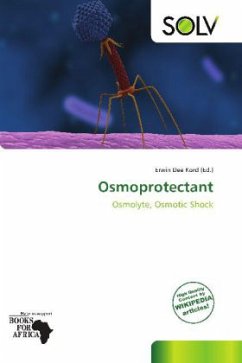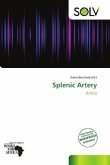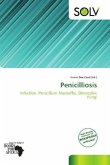Osmoprotectants or compatible solutes are small molecules that act as osmolytes and help organisms survive extreme osmotic stress. Examples include betaines, amino acids, and the sugar trehalose. These molecules accumulate in cells and balance the osmotic difference between the cell's surroundings and the cytosol. In extreme cases, such as in bdelloid rotifers, tardigrades, brine shrimp and nematodes, these molecules can allow cells to survive being completely dried out and let them enter a state of suspended animation called cryptobiosis. In this state the cytosol and osmoprotectants become a glass-like solid that helps stabilize proteins and cell membranes from the damaging effects of desiccation.
Bitte wählen Sie Ihr Anliegen aus.
Rechnungen
Retourenschein anfordern
Bestellstatus
Storno








